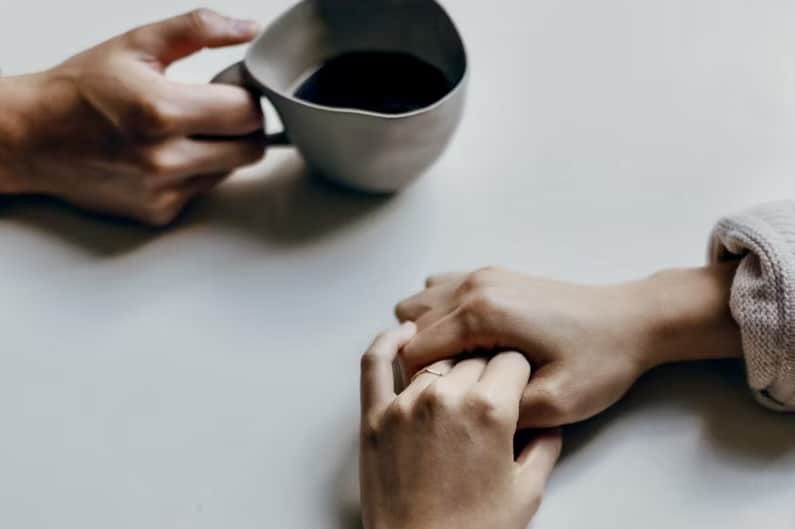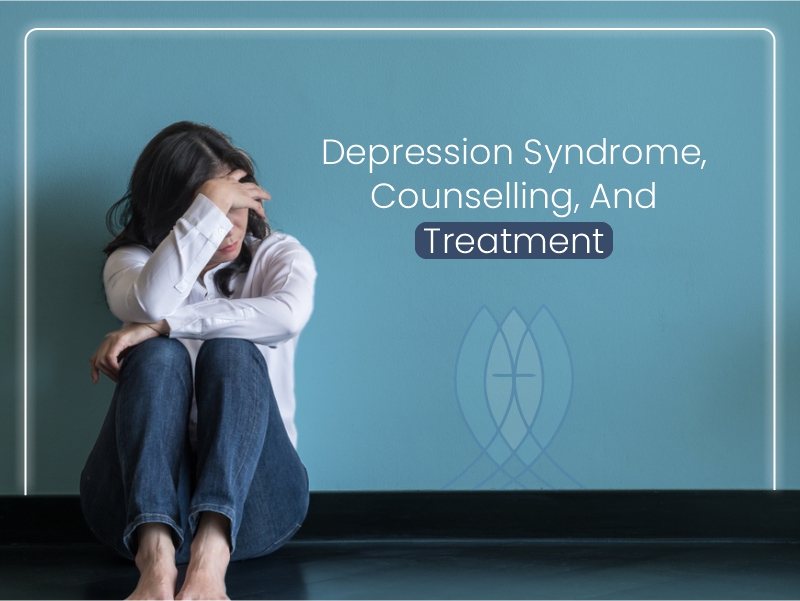Confidential care from a licensed therapist for anxiety in your area
Confidential care from a licensed therapist for anxiety in your area
Blog Article
Exploring Different Strategies in Coaching for Anxiousness Condition for Lasting Adjustment
When dealing with stress and anxiety problems, it's vital to explore a variety of therapy approaches. Each technique offers special understandings and devices to aid you handle your signs and symptoms successfully. You might find that combining methods can generate the very best results. Understanding the nuances of these methods is vital to promoting long-term change. What happens if the best combination could launch a brand-new degree of psychological wellness for you?
Recognizing Anxiety Disorders: A Short Introduction
Anxiousness disorders, which affect millions of individuals worldwide, can substantially impact every day life. You might experience overwhelming sensations of concern or fret that appear irrepressible. These sensations can lead to physical signs and symptoms like an auto racing heart, sweating, or perhaps lightheadedness. Typical sorts of anxiety disorders include generalised anxiety problem, panic attack, and social anxiousness problem. Each has one-of-a-kind indications, but they all share a propensity to disrupt your routine and relationships.Understanding the origin triggers of your stress and anxiety is crucial. It could stem from genes, brain chemistry, or life experiences. Recognizing your triggers can help you manage your feedbacks much better. It is very important to bear in mind that you're not alone in this struggle. Numerous people deal with similar difficulties, and looking for help is a solid action toward feeling much better. By learning more about anxiety conditions, you're currently on the path to understanding and managing your problem better.
Cognitive-Behavioral Treatment: Testing Adverse Thought Patterns
In Cognitive-Behavioral Treatment, you'll begin by identifying the adverse thought activates that add to your stress and anxiety. You'll work on replacing them with more positive alternatives as soon as you acknowledge these thoughts. Together, you'll develop efficient coping techniques to aid manage your stress and anxiety in everyday circumstances.
Recognizing Adverse Thought Triggers

When you experience moments of distress, recognizing the details triggers behind your unfavorable thoughts can be vital in handling anxiousness. Begin by focusing on scenarios that prompt sensations of concern or anxiety. Is it a crowded space, an approaching due date, or a discussion with certain individuals? Take down these instances in a journal. This will certainly help you identify patterns in your reasoning. Additionally, notice physical sensations that accompany your unfavorable thoughts, like an auto racing heart or tightness in your breast. By identifying these triggers, you gain understanding right into what's fueling your anxiousness. Recognizing these links is the very first step in testing those ideas and inevitably reclaiming control over your emotional reactions.
Replacing Thoughts With Positives
Testing adverse idea patterns is a vital action in transforming your mindset and lowering anxiousness. You might commonly find on your own caught in cycles of self-doubt or disastrous thinking. Rather than allowing these ideas dictate your feelings, practice replacing them with positive affirmations or sensible choices. When you think, "I can not handle this," move it to, "I can take care of challenges one action at a time." This basic change can considerably influence your mood. Regularly determining and countering these unfavorable ideas aids produce a healthier inner discussion. Remember, it takes time and effort, yet constantly exercising this method can cause long-term change, equipping you to deal with anxiety with renewed confidence and strength.
Structure Coping Approaches Together
Replacing unfavorable thoughts is just the beginning of managing stress and anxiety efficiently. To produce long lasting modification, you need to construct coping approaches that empower you. Cognitive-Behavioral Therapy (CBT) assists you determine and test those purposeless thought patterns. With each other, you and your therapist can discover exactly how these thoughts influence your sensations and behaviors.Start by creating practical strategies, like journaling or mindfulness workouts, that enable you to face anxiety head-on. When you face your concerns slowly, you'll discover to react in a different way.

Mindfulness and Acceptance-Based Approaches: Cultivating Present-Moment Recognition
As you navigate the intricacies of anxiousness, integrating mindfulness and acceptance-based methods can significantly enhance your capacity to cultivate present-moment awareness. By concentrating on the here and currently, you'll find that you can observe your thoughts and sensations without judgment (Counseling services for anxiety). This practice helps you recognize your stress and anxiety without feeling bewildered by it.Engaging in mindfulness workouts, such as deep breathing, body scans, or led reflections, allows you to ground on your own in your present experience. Acceptance-based approaches motivate you to embrace your feelings instead of combat versus them. They shed their power over you.Incorporating these methods into your everyday routine can change just how you respond to anxiousness when you accept your sensations. You'll develop durability and learn to browse stressful situations with greater simplicity. Inevitably, cultivating present-moment recognition lays the foundation for long-term modification, encouraging you to lead a much more satisfying life
Direct Exposure Therapy: Confronting Anxieties Progressively
Direct exposure treatment assists you face your anxieties in a steady way, making it less overwhelming. You'll find out strategies to face anxiety-provoking scenarios action by step, while likewise building coping approaches to manage your reactions. This strategy equips you to take control and reduce anxiousness over time.
Steady Exposure Techniques

When dealing with stress and anxiety, slowly challenging your anxieties can be an effective method to reclaim control. This method, understood as progressive exposure, entails slowly exposing yourself to the scenarios or items that activate your anxiety. Start with less intimidating circumstances and progressively function your method up to even more challenging ones. If you're terrified of public talking, you could begin by talking in front of a mirror, after that advance to sharing ideas with a buddy, and at some point deal with a small group. Each action helps desensitize you to the concern, developing your confidence with time. Keep in mind, it's vital to speed on your own and celebrate small triumphes as you relocate via this procedure, reinforcing your capacity to handle stress and anxiety successfully.
Building Coping Approaches
Structure efficient coping strategies is crucial for managing stress and anxiety, specifically as you confront your concerns slowly - Counseling services for anxiety. One powerful method is exposure therapy, where you begin by encountering your concerns in a controlled way. Start with much less frightening scenarios and slowly work your means up to more difficult scenarios. This gradual direct exposure helps desensitize you to stress and anxiety a knockout post sets off, making them more tips here less overwhelming.Incorporate leisure methods, such as deep breathing or mindfulness, to soothe your mind throughout direct exposure. Track your progression, celebrating tiny success along the means to boost your confidence. Keep in mind, it's all right to take your time; the objective isn't excellence but consistent improvement. By building these approaches, you'll empower yourself to navigate anxiousness and accept life much more totally
Psychodynamic Treatment: Uncovering Source of Anxiousness
Psychodynamic therapy checks out the subconscious mind, revealing the source of your anxiousness. By analyzing your thoughts, feelings, and past experiences, this approach assists you uncover underlying problems and unsolved concerns that might add to your existing anxiety. You'll collaborate with a specialist to check out childhood experiences, partnerships, and psychological patterns that form your responses today.As you get insight into these much deeper layers of your mind, you'll begin to recognize how previous events influence your present behavior. This understanding can result in catharsis, permitting you to process feelings you may have suppressed.Through the healing connection, you can likewise identify defense devices that may have created gradually, providing a more clear course to change. Inevitably, psychodynamic treatment equips you with the tools to resolve your anxiousness at its core, promoting long lasting improvement in your emotional well-being.
Holistic and integrative Methods: Combining Strategies for Greater Efficiency
Integrating numerous restorative techniques can boost your journey toward handling anxiety better. By combining aspects from cognitive-behavioral therapy, mindfulness practices, and holistic approaches, you can develop an individualized strategy that resolves your one-of-a-kind demands. For example, you might make use of cognitive-behavioral methods to test negative thought patterns while incorporating mindfulness exercises to ground yourself in the here and now moment.Additionally, checking out all natural practices such as yoga exercise or meditation can advertise leisure and lower stress and anxiety signs and symptoms. This mix allows you to create greater self-awareness and resilience.Experimenting with these diverse approaches can help you find what resonates most with you. Remember, it has to do with locating a harmony that functions, instead than staying with a single approach. This integrative strategy not only uses prompt alleviation but also promotes long-lasting skills for handling stress and anxiety, equipping you to redeem control over your life.
The Function of Support Systems: Structure Strength Through Link
While it might seem that taking care of anxiety is a singular trip, having a strong support system can play a necessary role in your durability. Surrounding on your own with empathetic good friends, household, or support groups creates a safe area where you can honestly share your experiences and sensations. When you link with others, you advise on your own that you're not alone in this struggle.These partnerships supply inspiration and can offer useful coping approaches that have actually helped others. It's additionally a possibility to get point of view; good friends Discover More can assist you see circumstances in a different way, reducing feelings of isolation.Moreover, emotional assistance cultivates a sense of belonging, which can considerably alleviate stress and anxiety signs and symptoms. By leaning on your support system, you can build resilience and deal with obstacles much more effectively. Bear in mind, connecting for help is a sign of toughness, and it can make all the difference in your journey towards handling stress and anxiety.
Frequently Asked Concerns
What Are the Common Signs And Symptoms of Anxiety Conditions?
You may experience uneasyness, fatigue, trouble focusing, irritation, muscle mass tension, and sleep disturbances. Physical signs and symptoms can include quick heartbeat, sweating, and shivering. Identifying these indicators early can assist you seek suitable support and treatment.
Just How Long Does Therapy Usually Last for Anxiousness Conditions?
Therapy for stress and anxiety conditions usually lasts anywhere from a couple of weeks to several months. It truly depends on your specific requirements, progress, and the techniques your specialist uses to help you manage your stress and anxiety effectively.
Can Medication Be Used Along With Treatment for Anxiety?
Yes, drug can definitely be used together with therapy for anxiousness. Integrating both methods commonly enhances treatment efficiency, assisting you handle signs while exploring underlying issues with therapy (Counseling services for anxiety). Constantly consult your doctor for personalized recommendations
Are There Self-Help Techniques for Taking Care Of Anxiety?
Yes, there are numerous self-help methods for managing anxiety. You can practice mindfulness, involve in normal workout, keep a balanced diet, develop a routine, and make use of deep breathing strategies to help in reducing anxiousness symptoms effectively.
Just how Do I Know if I Required Expert Aid for Stress And Anxiety?

Report this page